
We reviewed over 200 businesses worldwide*, and have identified over 165 businesses operating in the care economy across Latin America, Sub-Saharan Africa and Asia who met the following 4 criteria:
1. Geography focus: operating in project target countries.
2. Care economy impact: business activities recognize, reduce, reward or redistribute care work.
3. Proof of concept: care economy activities at least at the launch stage (none of the businesses are at concept stage).
4. Market-based intervention: already or planning to be financially profitable or to generate income in the medium term.
Out of the mapping we selected 60 businesses to conduct a full profile and showcase potential investment opportunities. These profiles have been created from information and data provided by the business itself. Use the filter on the left to access the businesses profiled.
* Disclaimer: The data presented in the business mapping and profiles is based on information provided by the businesses and has not been independently verified
1. Geography focus: operating in project target countries.
2. Care economy impact: business activities recognize, reduce, reward or redistribute care work.
3. Proof of concept: care economy activities at least at the launch stage (none of the businesses are at concept stage).
4. Market-based intervention: already or planning to be financially profitable or to generate income in the medium term.
Out of the mapping we selected 60 businesses to conduct a full profile and showcase potential investment opportunities. These profiles have been created from information and data provided by the business itself. Use the filter on the left to access the businesses profiled.
* Disclaimer: The data presented in the business mapping and profiles is based on information provided by the businesses and has not been independently verified
Filter Your Results
Arogga
Website: www.arogga.com
Headquarters: Bangladesh
Country of Operations: Bangladesh
Women owned / led: Founded by at least one woman
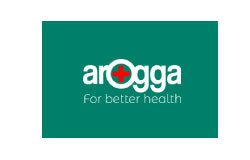
About the organization: Arogga is a a for-profit digital pharmacy and healthcare startup in Bangladesh. It has developed an app that enables patients to manage, order and track the delivery of medication and healthcare products in and around Dhaka. Arogga increases affordability and availability of medicines by buying in bulk and passing a percentage of the manufacturer’s discount to its customers. The platform also provides services such as doctor consultations, laboratory testing and insurance. Its services reduce the burden of unpaid care work involved in taking care of family members with chronic illnesses that require frequent follow-ups and medications. It enables customers to sources all prescribed medications from a single source.
Stage of Growth: Small scale roll-out/Early stage
Types of Services: “Care for persons with special needs (disabled / differently abled persons) Care for people with illnesses”
Activities in the care economy: Provision of affordable services that provide care & domestic work
Pathway to impact: Reduce
AYAT Care
Website: ayatcare.com
Headquarters: Bangladesh
Country of Operations: Bangladesh
Women owned / led: Founded by at least one woman, At least 30% women in senior leadership positions
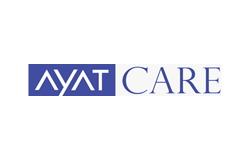
About the organization: AYAT Care provides personnel for care services which are tailored to the needs of the care receiver and includes health monitoring, mental health support and medical advice, in addition to traditional care for children and the elderly. It makes professional care services available to its customers by providing training for its care-givers. It provides employment opportunities to mostly female youth, who have dropped out from school, while serving customers who find it difficult to find trained and dependable caregivers. Although profit oriented, AYAT care is not profitable yet. It plans to become profitable in the next 3 years.
Stage of Growth: Small scale roll-out/Early stage
Types of Services: Child-care (Ages 6 and above), Elderly-care (Ages 60 and above), Care for persons with special needs (disabled / differently abled persons), Care for people with illnesses
Activities in the care economy: Provision of technology & services that train/upskill domestic & care workers
Pathway to impact: Recognize, Reward, Redistribute
Eau et Vie
Website: www.eauetvie.fr
Headquarters: France
Country of Operations: Bangladesh, Philippines
Women owned / led: Founded by at least one woman, At least 30% women in senior leadership positions, At least 30% of women in board of directors

About the organization: Eau et Vie is a non-profit that develops water networks in slum areas to provide affordable and sustainable tap water at home. The organization is able to serve tap water in locations where operators of municipal systems are unable to reach. This enables time savings for women and reduces drudgery in accessing water from inconvenient locations. Furthermore, it not only promotes urban inclusion but also has impacts on aspects such as hygiene (personal and menstrual), fire-fighting, waste management and sanitation.
Stage of Growth: Small scale roll-out/Early stage
Types of Services: Domestic services, Labour saving solutions
Activities in the care economy: Provision of technology, services & policies/practice that improve conditions for domestic & care worker
Pathway to impact: Recognize, Reduce
Eshururu Training Center (ETC)
Website: eshururucenter.com
Headquarters: Ethiopia
Country of Operations: Ethiopia
Women owned / led: Founded by at least one woman
About the organization: ElleSolaire is a solar social enterprise in Senegal. This non-profit enterprise bridges the gap between international manufacturers of breakthrough solar technologies and those who most need their products in remote off-grid communities. ElleSlaire has developed a woman led distribution network and supply chain for products like solar lamps, home solar systems and clean cookstoves. ElleSolaire’s solutions help reduce the amount of time women spend on domestic work, enable children to study after dark and help families to stay connected by mobile phones. So far, the enterprise has helped over 3,500 people and over 125 children with access to affordable electricity.
Stage of Growth: Established/Mature
Types of Services: Infant-care (children younger than 1-year), Child-care (Ages 1 to 5), Child-care (Ages 6 and above)
Activities in the care economy: Provision of technology & services that train/upskill domestic & care workers
Pathway to impact: Recognize, Reduce
Folia Water
Website: www.foliawater.com
Headquarters: United States of America
Country of Operations: Bangladesh
Women owned / led: Founded by at least one woman
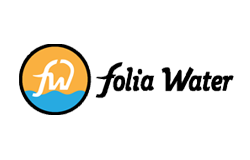
About the organization: Folia Water is a for-profit company. It provides affordable and effective water filtration systems to communities that lack access to safe and potable water. Its patented silver-infused filter papers kill bacteria and viruses and filter out dirt and larger parasites. Its water filteration systems reduce the drudgery in collecting water from inconvenient places, especially for women. Other associated impacts include reduced negative health impacts from unsafe water and associated time and capital costs for low-income households.
Stage of Growth: Small scale roll-out/Early stage
Types of Services: Domestic services, Labour saving solutions
Activities in the care economy: Provision of affordable time and labour saving technology and products
Pathway to impact: Reduce
Nazava Water Filters
Website: www.nazava.com
Headquarters: Indonesia
Country of Operations: Ethiopia, Indonesia, Kenya
Women owned / led: Founded by at least one woman, At least 30% women in senior leadership positions, At least 30% of women in board of directors
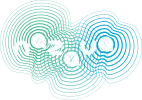
About the organization: Nazava is a for-profit enterprise that produces affordable gravity based ceramic household water filters, replacing the need to boil water on wood or LPG. It reduces care work as women save 139 hours per year on boiling and collecting fuel using the water filters. Nazava purified water is 3 times cheaper than boiling and 9 times cheaper than buying water from refill-kiosks.
Stage of Growth: Mass roll-out/Expansion
Types of Services: Labour saving solutions
Activities in the care economy: Provision of affordable time and labour saving technology and products
Pathway to impact: Reduce
Phulki
Website: www.phulkibd.org
Headquarters: Bangladesh
Country of Operations: Bangladesh
Women owned / led: Founded by at least one woman, At least 51% owned by women, At least 30% women in senior leadership positions, At least 30% of women in board of directors
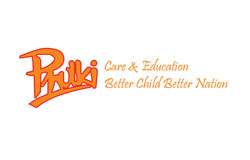
About the organization: Phulki is the pioneer in establishing early childhood development programs in Bangladesh. Phulki provides various training on health issues, woman rights, and vocational trainings such as caregiver training, supervision training and others, to increase women’s financial stability. It has setup childcare facilities in the workplace for women that are employed in garment factories in Bangladesh. Phulki also works with domestic house helpers building their capacity.
Stage of Growth: Established/Mature
Types of Services: Infant-care (children younger than 1-year), Child-care (Ages 1 to 5), Child-care (Ages 6 and above), Domestic services, Labour saving solutions
Activities in the care economy: Provision of affordable services that provide care & domestic work
Pathway to impact: Reduce, Redistribute
Prime Indonesia
Website: primeindonesia.id
Headquarters: Indonesia
Country of Operations: Ethiopia, Ghana, Indonesia, Kenya, Nigeria, Senegal, South Africa, Zambia, Cambodia, Papua New Guinea
Women owned / led: Founded by at least one woman
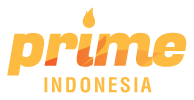
About the organization: Prime Indonesia is a for-profit enterprise that produces and distributes energy-saving biomass stoves. The company serves poor people in Indonesia by providing cheaper cook stoves. It reduces the amount of time spent by women in cooking and wood collection, and saves households from spending on refilling LPG or Kerosene. In addition, prime stoves are also healthy and energy-efficient products, reducing maternal and child mortality due to smoke when cooking using traditional stoves.
Stage of Growth: Mass roll-out/Expansion
Types of Services: Domestic services
Activities in the care economy: Provision of technology, services & policies/practice that improve conditions for domestic & care worker
Pathway to impact: Reduce
